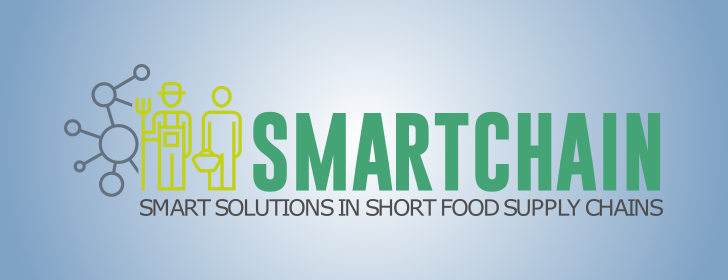Current Projects
Projects currently running under the auspices of the Hohenheim Research Center for Bioeconomy are:
Completed Projects
Every year, around 1.3 billion tons of food are being thrown away or get lost along the value chain - worldwide. This makes out a third of the food that is being produced (FAO, 2011). In the European Union, every person throws away an average of 179 kg of food per year. That adds up to around 89 million tons of garbage annually.
In the light of the above, the EU project FUSIONS (Food Use for Social Innovation by Optimising Waste Prevention Strategies) was launched. It unites central actors of the European food sector (scientists and researchers, retail, food service companies, consumer organizations, NGOs, and legislators) in a unique European platform and develops new strategies and approaches for a better use of food along the entire production and consumption chain. more
The NIWEL Creative Workshops were a combination of network platforms, sources of inspiration, and innovation lab. They gave participants the opportunity to develop creative ideas and products according to the criteria of bioeconomy.
The workshops were open to participants from research and science, economics, politics, culture, and civil society, and gave them the chance to put bioeconomy strategies into action in interactive work. Our creative workshops were built on the input from trendsetters of the German-speaking community and innovative communication catalysts.more
In order to support SMEs who produce traditional food, the EU project TRAFOON has improved the knowledge transfer for innovation during 3 years (01.11.2013 – 31.10.2016). TRAFOON was a network of 29 European research institutions, technology transfer agencies and SME associations from 14 European countries. The project has covered the value chain of 4 groups of traditional food products based on (1) grains, (2) fish, (3) vegetables & mushrooms, and (4) sweet fruits & olives, focusing on the innovation, protection, preservation and further development of traditional foods in Europe. more
In the Interreg Central Europe project I-CON, partners from seven Central European countries joined forces to improve entrepreneurial skills and capabilities in remote areas through food innovation potentials. more
Science shops are a form of citizen-based research that pursue the goal of establishing a mutually beneficial cooperation among actors from the industrial sector, civil society, and research institutions. The original idea for science shops was the creation of a designated point of contact at a university where citizens and interests groups could come into direct contact with researchers to find solutions for specific social problems or get information about new insights and research trends.
The project ‘SciShops’ built on the capacity of already existing science shops in Europe and developed a strategy for knowledge exchange with the support of research institutions. Within the project, new science shops were founded at various organizations such as universities, research institutions, and businesses. These were linked with already existing science shops to be able to effectively pass on the knowledge and experiences of the new institutions. more
For many consumers wanting to replace products of animal origin partly or completely with plant-based food products, the search for the right information including the avoidance of nutritional deficits is a challenge. The V-PLACE has set out to empower consumer choices in an easily accessible and consumer-centric manner. Informative and science-based articles on FoodUnfolded are targeting consumers for in-depth details about their preferred diet (omnivore, flexitarian, pescatarian, vegetarian, or vegan) in an easy and understandable way.
In the market of food products, significant growth is predicted via mass-market substitutions rather than expansion of niche products. There is an identified need to research and actualize the knowledge about consumer expectations, attitudes, and needs to adopt current strategies accordingly.
The V-PLACE looks at the interplay of product properties, expectations, and communication on vegan and vegetarian food products, including ingredients and health properties (perceived and expected), via consumer studies in the form of qualitative expert interviews and a large-scale European quantitative consumer study in 5 countries. Results will be made available in the form of two White Papers that display the results in an entertaining and easily accessible form.
Find the download for the White Paper on the results of the expert interviews here
MYPACK
A comprehensive state of the art on the available applications as well as technical output from research and development projects will be presented in order to study, understand and underline the main locks to the market. The potentialities and the bottle necks connected to the use of these materials/solutions will be derived from the state of the art and the project will provide possible solutions in order to match the market and consumers requirements with the feature of the materials. The aim is to waive these locks in order to improve the broad scale development of those selected products in markets which present the best characteristics for successful application. By the end of the project, markets will be identified, developed and exploited. An “identified market” means the identification of a given combination of consumer profile, food product application, packaging technology, geographical areas in Europe, and end of life option.
BIOCARB-4-FOOD
Carbohydrates are the most important source of energy from food and its main component. They serve as thickeners, gelling agents, stabilizers, or have other functional properties. Cell wall polysaccharides and bioactive polyphenols or carotenoids are obtained from algae and seaweeds, but these sources are not exhausted. Current extraction methods for their production are inefficient. Usually >50% of the remaining carbohydrate-rich biomass is disposed of as compost or organic waste. more







